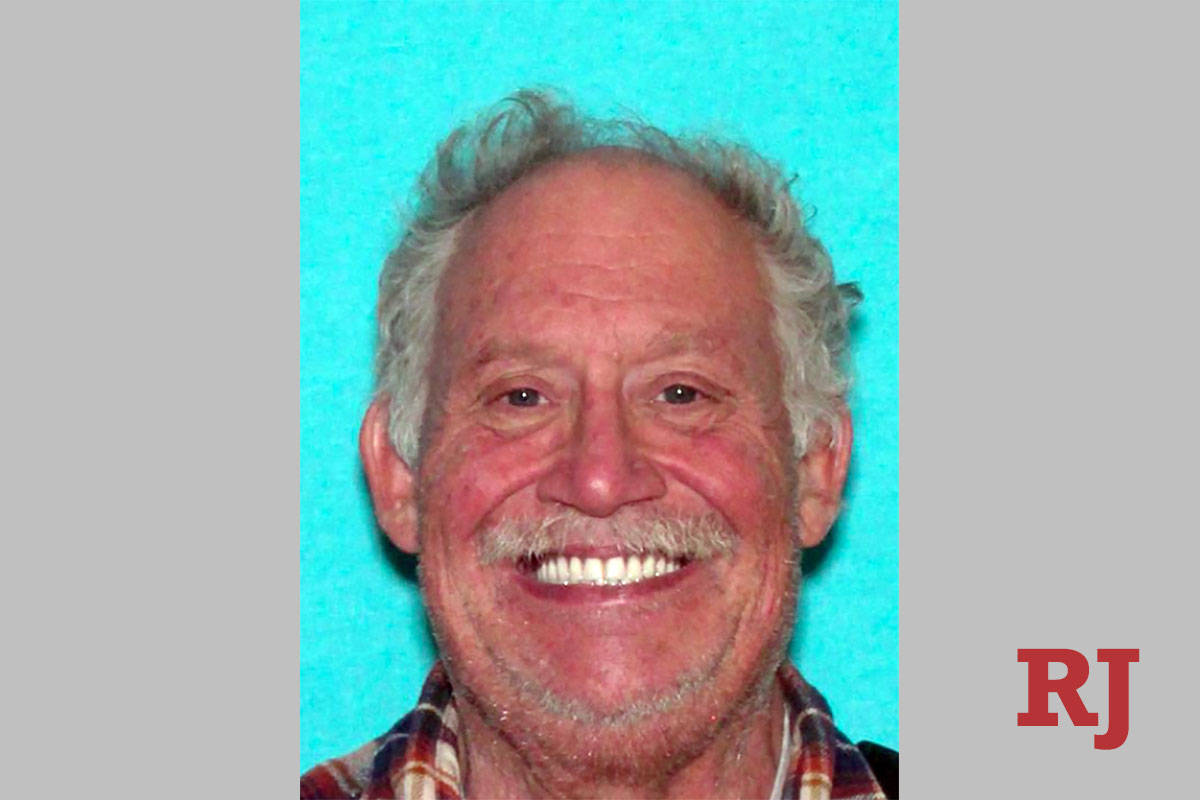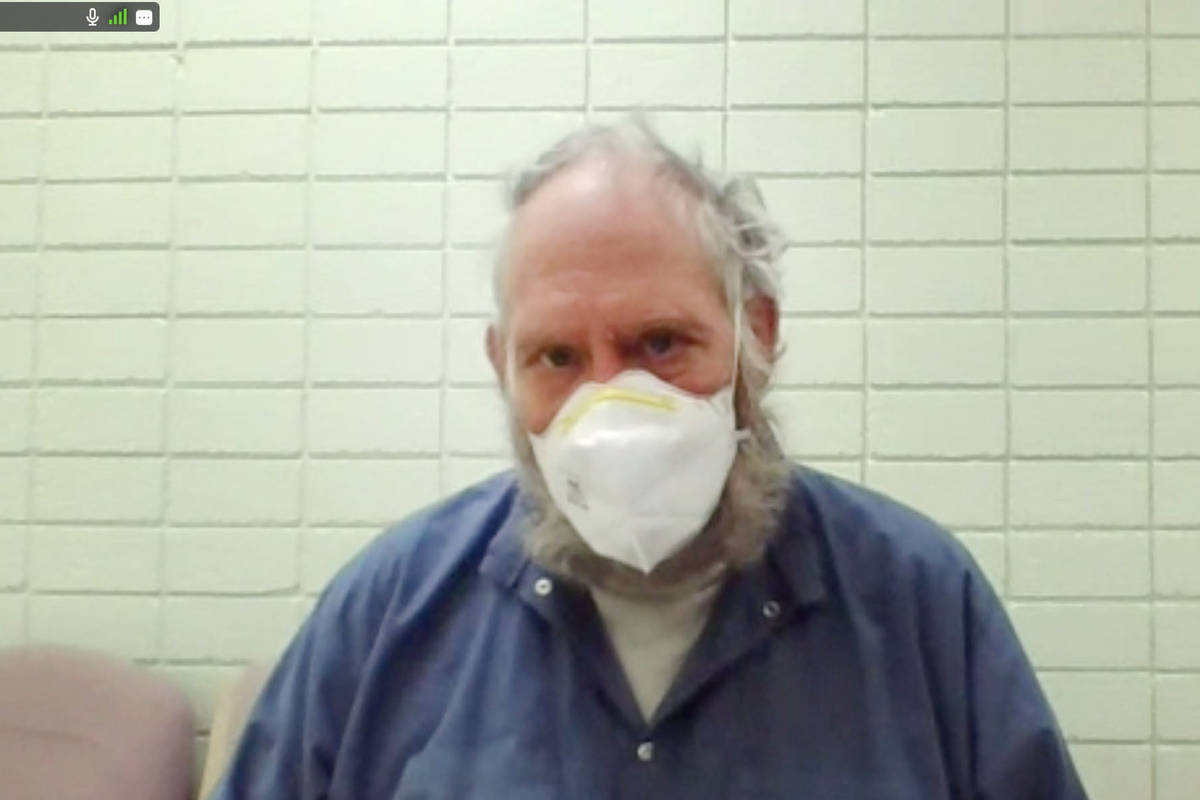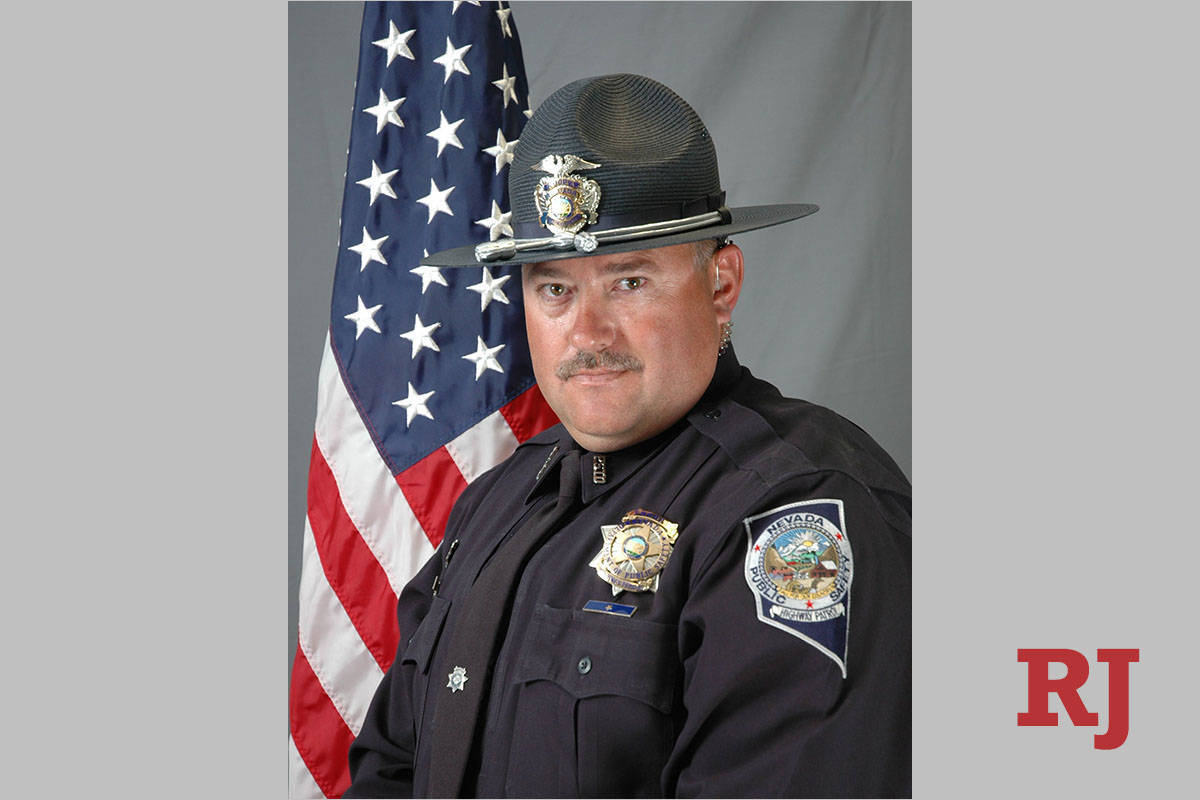Suspect in Nevada Highway Patrol trooper’s death pleads not guilty
The mentally ill man accused of fatally shooting a Nevada Highway Patrol sergeant in March pleaded not guilty on Wednesday in the capital murder case.
John Dabritz, 66, is charged with open murder, third-degree arson, grand larceny of a motor vehicle and grand larceny of a firearm in connection with the March 27 killing of Sgt. Ben Jenkins, a married father of four with five grandchildren.
The defendant, wearing powder-blue jail garb, appeared for his arraignment in White Pine County District Court via videoconference from the Northern Nevada Correctional Center, where he will remain in custody as he awaits trial.
He answered to each of the charges during his arraignment by saying, “Not guilty by reason of insanity.”
If convicted of murder, Dabritz, who is diagnosed with Type 1 bipolar disorder, could be sentenced to death. A jury trial is set to begin in September.
For months, criminal proceedings in the case were delayed while Dabritz underwent court-ordered psychiatric treatment. He was found competent to stand trial in October, though his defense attorneys, Kirsty Pickering and Richard Sears, have said they intend to use the insanity defense at trial.
A psychiatrist previously testified that Dabritz has a “very classic presentation” of Type 1 bipolar disorder. Symptoms that led to his diagnosis, according to Dr. Steven Zuchowski, included paranoia, extreme irritability and anger “that was very difficult for him to control and would have been impossible for someone to fake in any kind of sustained way.”
In the days after the shooting, the Las Vegas Review-Journal learned that Dabritz had long suffered from bipolar disorder and alcoholism and had spent the weeks leading up to the shooting on a paranoid quest to warn people of his theory that COVID-19 was spreading through the water and sewer systems.
‘Went off the edge’
His efforts landed him at William Bee Ririe Hospital in Ely on a legal mental health hold before he was flown around March 14 to Desert Parkway Behavioral Healthcare Hospital in Las Vegas. He was released on March 20, court records show, a week before Jenkins was killed.
“The thing is they let him out, and they really shouldn’t have,” the defendant’s younger brother, Karl, told the Review-Journal in a phone interview shortly after Wednesday’s hearing. “He was totally out of his mind, if you know what I mean.”
Desert Parkway has not responded to requests for comment.
According to Karl Dabritz, his brother has suffered from bipolar disorder for at least a decade and in the months prior to the fatal shooting had been trying to get medication.
“He was messed up for months,” Karl Dabritz said, adding that his brother “totally went off the edge” sometime in either late February or early March last year, when the COVID-19 pandemic was unfolding.
Karl Dabritz, a California resident who attended the arraignment via videoconference, said he likely will not attend the trial later this year, but that he is “tore up from the floor up” over his brother’s situation.
Authorities have said the shooting unfolded just before dawn on a remote highway north of Ely, shortly after Jenkins pulled over to check on a stranded driver.
Officer’s last moments
During Jenkins’ interactions with the driver, prosecutor James Beecher has said, “there was no expressed provocation” prior to the first gunshot.
“Officer shot, officer shot!” Jenkins yelled into his radio, according to a video captured by his body camera. The footage of the officer’s final moments was shown publicly for the first time in November during a preliminary hearing in the case.
Jenkins collapsed to the snow-covered ground.
“I’ve been shot in the right shoulder,” Jenkins said, breathing heavily, as he tried to crawl toward his patrol vehicle. “I’ve —”
Another round went off, according to the video, and Jenkins stopped moving. It would be his final dispatch.
In addition to the highway shooting, authorities have linked John Dabritz to a growing list of crimes, including a series of shootings in Wells and Ely and the detonation of an explosive device in Tybo, about 70 miles outside of Tonopah, that police have said was related to “anti-government extremism.”
Court documents obtained by the Review-Journal revealed that prosecutors believe John Dabritz shot Jenkins “to avoid or prevent” his arrest in connection with the Wells and Ely shootings — described by prosecutors as an “act of terrorism.”
Contact Rio Lacanlale at rlacanlale@reviewjournal.com or 702-383-0381. Follow @riolacanlale on Twitter.




















